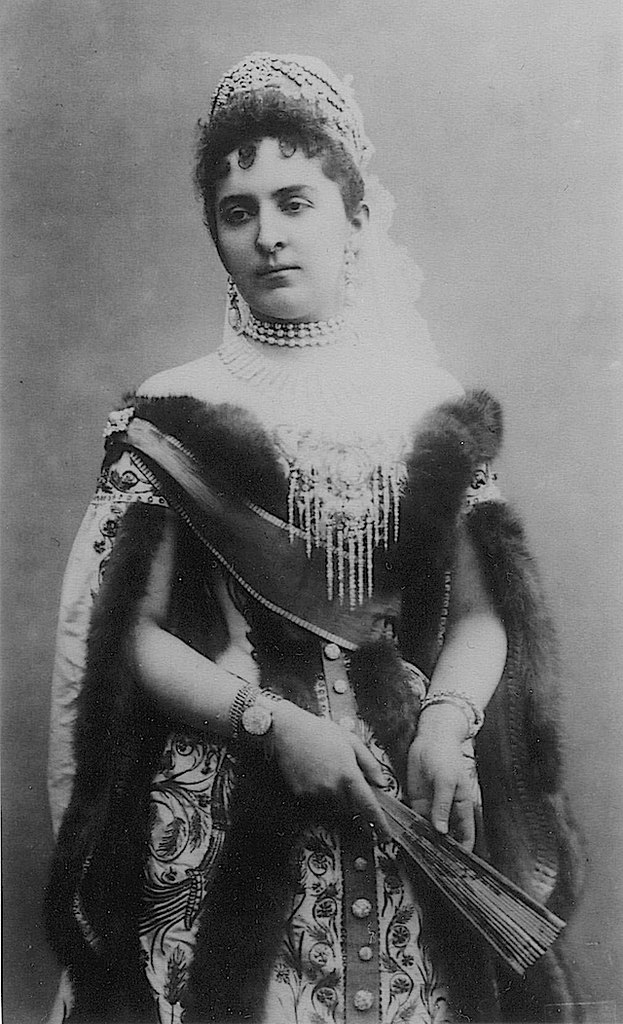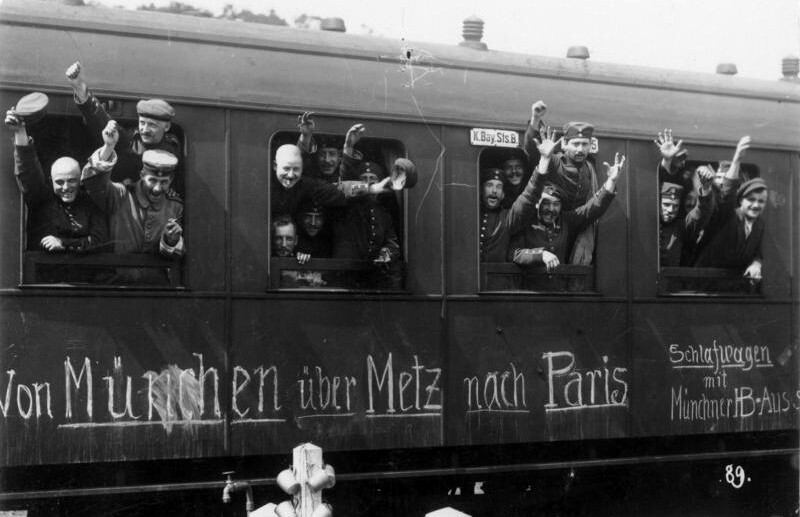|
Manifesto To The Polish Nation
The Manifesto to the Polish Nation, also called the Manifesto of Grand Duke Nicholas or Manifesto of the 14th August 1914; pl, Odezwa Wielkiego Księcia Mikołaja Mikołajewicza was a proclamation by Grand Duke Nicholas Nicholas Romanov may refer to: * Nicholas I of Russia (1796–1855), third son of Paul I & Tsaritsa Maria Fedorovna; younger brother of Alexander I, ascended 1825 * Nicholas Alexandrovich, Tsesarevich of Russia (1843–1865), eldest son of Emperor ..., commander in chief of the Russian armies to Poles on 14 August 1914 after the outbreak of World War I. Nicholas, proclaiming that though 'a hundred and fifty years ago the living body of Poland was torn to pieces, ..her soul survived and she lived in hope that for the Polish people would come an hour of regeneration and reconciliation with Russia'. Nicholas promised the re-unification of the Polish lands under the aegis of the Russian Tsar and an autonomy to the Poles. The manifesto was met with appreciation by R ... [...More Info...] [...Related Items...] OR: [Wikipedia] [Google] [Baidu] |
Grand Duke Nicholas Nikolaevich Of Russia (1856–1929)
Grand Duke Nicholas Nikolaevich of Russia (Russian: Николай Николаевич Романов (младший – ''the younger''); 18 November 1856 – 5 January 1929) was a Russian general in World War I (1914–1918). The son of Grand Duke Nicholas Nikolaevich of Russia (1831–1891), and a grandson of Emperor Nicholas I of Russia, he was commander in chief of the Imperial Russian Army units on the main front in the first year of the war, during the reign of his first cousin once removed, Nicholas II. Although held in high regard by Paul von Hindenburg, he struggled with the colossal task of leading Russia's war effort against Germany, including strategy, tactics, logistics and coordination with the government.Paul Robinson, "A Study of Grand Duke Nikolai Nikolaevich as Supreme Commander of the Russian Army, 1914–1915." ''Historian'' 75.3 (2013): 475-498online/ref> After the Gorlice–Tarnów offensive in 1915, Tsar Nicholas replaced the Grand Duke as commander ... [...More Info...] [...Related Items...] OR: [Wikipedia] [Google] [Baidu] |
World War I
World War I (28 July 1914 11 November 1918), often abbreviated as WWI, was one of the deadliest global conflicts in history. Belligerents included much of Europe, the Russian Empire, the United States, and the Ottoman Empire, with fighting occurring throughout Europe, the Middle East, Africa, the Pacific, and parts of Asia. An estimated 9 million soldiers were killed in combat, plus another 23 million wounded, while 5 million civilians died as a result of military action, hunger, and disease. Millions more died in genocides within the Ottoman Empire and in the 1918 influenza pandemic, which was exacerbated by the movement of combatants during the war. Prior to 1914, the European great powers were divided between the Triple Entente (comprising France, Russia, and Britain) and the Triple Alliance (containing Germany, Austria-Hungary, and Italy). Tensions in the Balkans came to a head on 28 June 1914, following the assassination of Archduke Franz Ferdin ... [...More Info...] [...Related Items...] OR: [Wikipedia] [Google] [Baidu] |
Partitions Of Poland
The Partitions of Poland were three partitions of the Polish–Lithuanian Commonwealth that took place toward the end of the 18th century and ended the existence of the state, resulting in the elimination of sovereign Poland and Lithuania for 123 years. The partitions were conducted by the Habsburg monarchy, the Kingdom of Prussia, and the Russian Empire, which divided up the Commonwealth lands among themselves progressively in the process of territorial seizures and annexations. The First Partition was decided on August 5, 1772 after the Bar Confederation lost the war with Russia. The Second Partition occurred in the aftermath of the Polish–Russian War of 1792 and the Targowica Confederation of 1792 when Russian and Prussian troops entered the Commonwealth and the partition treaty was signed during the Grodno Sejm on January 23, 1793 (without Austria). The Third Partition took place on October 24, 1795, in reaction to the unsuccessful Polish Kościuszko Uprising the previ ... [...More Info...] [...Related Items...] OR: [Wikipedia] [Google] [Baidu] |
Roman Dmowski
Roman Stanisław Dmowski (Polish: , 9 August 1864 – 2 January 1939) was a Polish politician, statesman, and co-founder and chief ideologue of the National Democracy (abbreviated "ND": in Polish, "''Endecja''") political movement. He saw the Germanization of Polish territories controlled by the German Empire as the major threat to Polish culture and therefore advocated a degree of accommodation with another power that had partitioned Poland, the Russian Empire. He favoured the re-establishment of Polish independence by nonviolent means and supported policies favourable to the Polish middle class. While in Paris during World War I, he was a prominent spokesman for Polish aspirations to the Allies through his Polish National Committee. He was an instrumental figure in the postwar restoration of Poland's independent existence. Throughout most of his life, he was the chief ideological opponent of the Polish military and political leader Józef Piłsudski and of the latter's ... [...More Info...] [...Related Items...] OR: [Wikipedia] [Google] [Baidu] |
World War I Documents
In its most general sense, the term "world" refers to the totality of entities, to the whole of reality or to everything that is. The nature of the world has been conceptualized differently in different fields. Some conceptions see the world as unique while others talk of a "plurality of worlds". Some treat the world as one simple object while others analyze the world as a complex made up of many parts. In ''scientific cosmology'' the world or universe is commonly defined as " e totality of all space and time; all that is, has been, and will be". '' Theories of modality'', on the other hand, talk of possible worlds as complete and consistent ways how things could have been. ''Phenomenology'', starting from the horizon of co-given objects present in the periphery of every experience, defines the world as the biggest horizon or the "horizon of all horizons". In ''philosophy of mind'', the world is commonly contrasted with the mind as that which is represented by the mind. ''Th ... [...More Info...] [...Related Items...] OR: [Wikipedia] [Google] [Baidu] |
Manifestos
A manifesto is a published declaration of the intentions, motives, or views of the issuer, be it an individual, group, political party or government. A manifesto usually accepts a previously published opinion or public consensus or promotes a new idea with prescriptive notions for carrying out changes the author believes should be made. It often is political Politics (from , ) is the set of activities that are associated with making decisions in groups, or other forms of power relations among individuals, such as the distribution of resources or status. The branch of social science that studies ..., Social movement, social or Art manifesto, artistic in nature, sometimes Political revolution, revolutionary, but may present an individual's life stance. Manifestos relating to religious belief are generally referred to as creeds or, a confession of faith. Etymology It is derived from the Italian word ''manifesto'', itself derived from the Latin ''manifestum'', meaning c ... [...More Info...] [...Related Items...] OR: [Wikipedia] [Google] [Baidu] |
Congress Poland
Congress Poland, Congress Kingdom of Poland, or Russian Poland, formally known as the Kingdom of Poland, was a polity created in 1815 by the Congress of Vienna as a semi-autonomous Polish state, a successor to Napoleon's Duchy of Warsaw. It was established when the French ceded a part of Polish territory to the Russian Empire following France's defeat in the Napoleonic Wars. In 1915, during World War I, it was replaced by the German-controlled nominal Regency Kingdom until Poland regained independence in 1918. Following the partitions of Poland at the end of the 18th century, Poland ceased to exist as an independent nation for 123 years. The territory, with its native population, was split between the Habsburg monarchy, the Kingdom of Prussia, and the Russian Empire. After 1804, an equivalent to Congress Poland within the Austrian Empire was the Kingdom of Galicia and Lodomeria, also commonly referred to as "Austrian Poland". The area incorporated into Prussia and subse ... [...More Info...] [...Related Items...] OR: [Wikipedia] [Google] [Baidu] |
1914 In Poland
This year saw the beginning of what became known as World War I, after Archduke Franz Ferdinand of Austria, heir to the Austrian throne was Assassination of Archduke Franz Ferdinand, assassinated by Serbian nationalist Gavrilo Princip. It also saw the first airline to provide scheduled regular commercial passenger services with heavier-than-air aircraft, with the St. Petersburg–Tampa Airboat Line. Events January * January 1 – The St. Petersburg–Tampa Airboat Line in the United States starts services between St. Petersburg, Florida, St. Petersburg and Tampa, Florida, becoming the first airline to provide scheduled regular commercial passenger services with heavier-than-air aircraft, with Tony Jannus (the first federally-licensed pilot) conveying passengers in a Benoist XIV flying boat. Abram C. Pheil, mayor of St. Petersburg, is the first airline passenger, and over 3,000 people witness the first departure. * January 11 – The Sakurajima volcano in Japan b ... [...More Info...] [...Related Items...] OR: [Wikipedia] [Google] [Baidu] |
1914 In The Russian Empire
This year saw the beginning of what became known as World War I, after Archduke Franz Ferdinand of Austria, heir to the Austrian throne was Assassination of Archduke Franz Ferdinand, assassinated by Serbian nationalist Gavrilo Princip. It also saw the first airline to provide scheduled regular commercial passenger services with heavier-than-air aircraft, with the St. Petersburg–Tampa Airboat Line. Events January * January 1 – The St. Petersburg–Tampa Airboat Line in the United States starts services between St. Petersburg, Florida, St. Petersburg and Tampa, Florida, becoming the first airline to provide scheduled regular commercial passenger services with heavier-than-air aircraft, with Tony Jannus (the first federally-licensed pilot) conveying passengers in a Benoist XIV flying boat. Abram C. Pheil, mayor of St. Petersburg, is the first airline passenger, and over 3,000 people witness the first departure. * January 11 – The Sakurajima volcano in Japan b ... [...More Info...] [...Related Items...] OR: [Wikipedia] [Google] [Baidu] |





